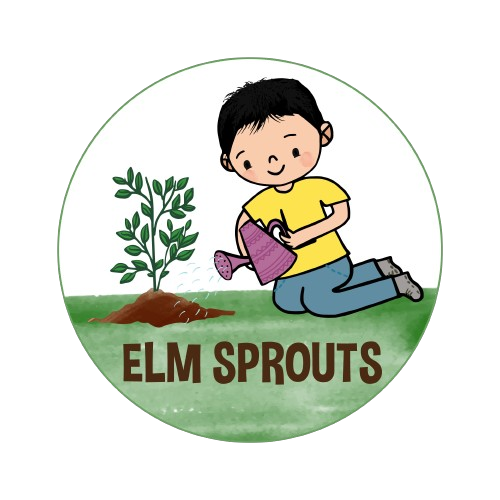How Social-Emotional Learning in Early Childhood Leads to Lifelong Success
As parents, we often focus on our children’s grades, reading skills, and school readiness. But there’s something even more foundational that sets them up for lifelong success: social-emotional learning, or SEL.
SEL helps children build emotional intelligence, self-awareness, responsible decision-making, and strong social skills. It’s about more than feelings—it’s about building life skills that last well into adulthood.
Let’s explore what the research says about the powerful long-term impact of SEL in early childhood—and how we, as parents, can support it from the very beginning.
Why Start SEL Early?
Social-emotional learning doesn’t just help young children manage their feelings or get along with others. It lays the groundwork for future success—in school, relationships, mental health, and even the workplace.
Studies increasingly show that introducing SEL during the early years helps children grow into resilient, emotionally balanced, and confident adults (The Aspen Institute, 2020).
What Long-Term Research Reveals
Researchers have been following children over many years to study the lasting effects of early SEL. The findings are eye-opening:
A national report by the Aspen Institute’s A Nation at Hope (2020) found that early SEL skills are strong predictors of long-term mental health, academic achievement, and career readiness.
A 2021 study published in The Future of Children confirms that early SEL programs help kids improve emotion regulation, resilience, and self-management—which are linked to lower anxiety and depression in later life (Mahoney et al., 2021).
In short: what children learn about emotions at age 4 could shape how they thrive at 40.
Key Benefits of Early SEL
Improved Mental Health
Children who participate in SEL programs show:
A 24% increase in positive social behavior
A 23% reduction in symptoms of anxiety and depression
(National Center on Safe Supportive Learning Environments, 2021)
When children learn to express their emotions, manage stress, and cope with difficult feelings early on, they’re more emotionally prepared to face challenges throughout life.
Stronger Social Skills
Preschoolers who receive SEL instruction are more likely to grow into collaborative, empathetic, and respectful adults, according to research in Educational Psychologist (2022). These qualities are crucial not only in friendships and families but also in workplaces and leadership roles.
Being able to listen, share, negotiate, and resolve conflict are not just school skills—they’re life skills.
Real-World Success: SEL in Action
Programs like PATHS (Promoting Alternative Thinking Strategies) and those supported by CASEL (Collaborative for Academic, Social, and Emotional Learning) are already showing incredible long-term results.
According to the Wallace Foundation (2020), students who participated in PATHS showed improvements in:
Emotional awareness
Problem-solving
Classroom engagement
The 2023 CASEL Guide to Effective SEL Programs also highlights positive outcomes in academic achievement and personal growth across various age groups and communities.
These aren’t just one-time wins—they’re building blocks for lifelong development.
Why SEL Matters for the Future
The benefits of SEL go far beyond childhood. According to the Aspen Institute (2020), students with strong SEL skills are more likely to:
Graduate from high school
Do well in college
Stay employed full time
And in today’s fast-changing world, employers are looking for people with more than just technical know-how. The World Economic Forum (2023) lists emotional intelligence, adaptability, and collaboration as some of the most in-demand skills in the global workforce.
These are exactly the qualities SEL helps nurture—starting in preschool.
What This Means for You as a Parent
The message is clear: starting SEL early works.
It strengthens mental health
Builds social confidence
Prepares children for future success—in school, relationships, and careers
And it all begins at home.
By modeling emotional awareness, encouraging empathy, and using daily opportunities to talk about feelings and choices, you are laying the foundation for a successful, well-adjusted adult.
Conclusion: It Starts With Us
We now know from decades of research that early SEL investment pays off—in school, in relationships, and in life.
As parents, the steps we take today to nurture emotional intelligence in our young children can help shape a kinder, more resilient, and successful future.
Let’s give our kids more than an academic head start. Let’s give them the tools to thrive as whole human beings—starting from age four and up.
References
The Aspen Institute. (2020). A Nation at Hope. https://files.eric.ed.gov/fulltext/ED609940.pdf
Mahoney, J. L., et al. (2021). Future of Children. https://doi.org/10.1353/foc.2021.0000
National Center on Safe Supportive Learning Environments. (2021). SEL Outcomes in Education. https://safesupportivelearning.ed.gov
Wallace Foundation. (2020). Navigating SEL from the Inside Out. https://wallacefoundation.org/
World Economic Forum. (2023). The Future of Jobs Report. https://www.weforum.org/publications/the-future-of-jobs-report-2023/

